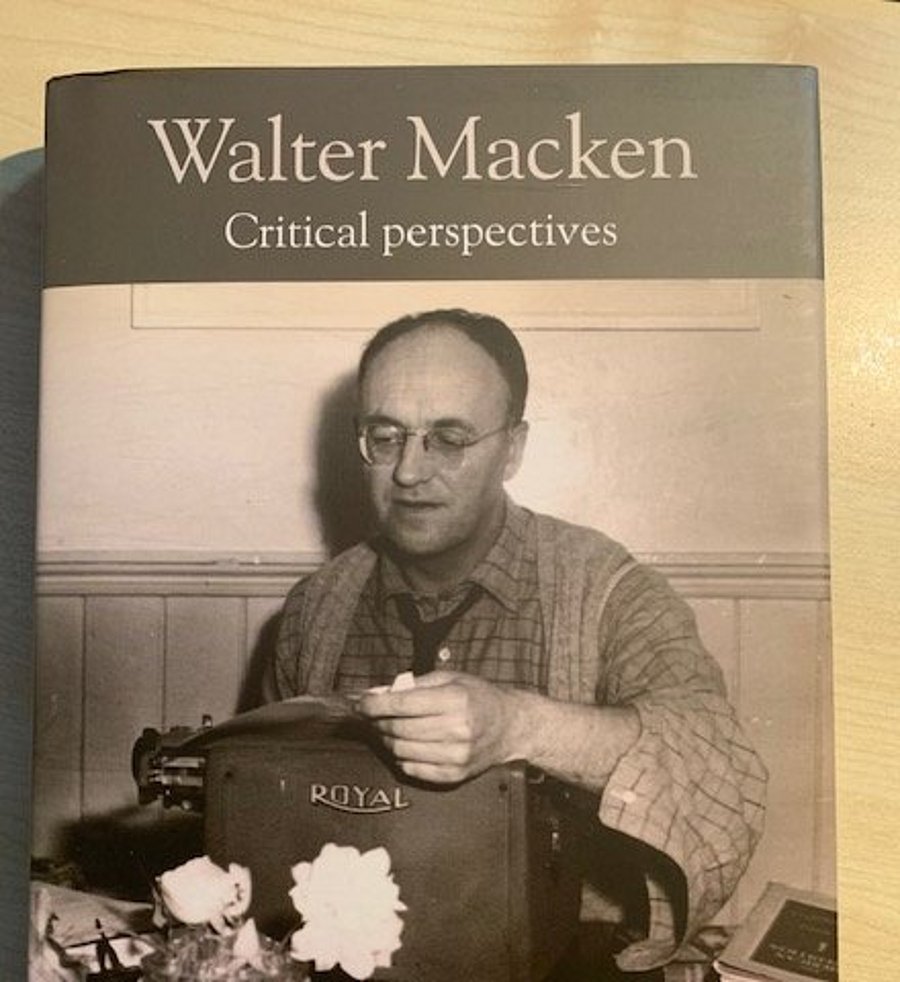Publication News: Walter Macken. Critical Perspectives

New Publication
Walter Macken: Critical Perspectives
Ed. by Sandra Heinen and Katharina Rennhak
Cork University Press 2022
Irish Times: Review of Walter Macken: Critical Perspectives
This collection of essays is the first full-length critical study of Walter Macken's writing. Most international readers probably remember Walter Macken for his bestselling trilogy of historical novels that charts the Irish struggle for independence from the Cromwellian conquest in Seek the Fair Land (1959), through the Great Famine in The Silent People (1962), to the War of Independence and Irish Civil War in The Scorching Wind (1964). Many Irish readers may also remember him as the author of Flight of the Doves (1968), the widely read children’s book that was turned into a Hollywood movie. Theatregoers and lovers of Irish-language literature will know Walter Macken for the impact his work as actor and author had at An Taibhdhearc, the national Irish-language theatre of Ireland in Galway. Macken also had great success, both as author and actor, at the Abbey Theatre. The most famous of his plays staged at the Abbey is certainly Home is the Hero, which was also turned into an acclaimed film starring the author in the lead role.
Macken’s literary works are not high literature of the kind that traditionally used to be – and in many ways still is – the chief concern of literary scholars or the main subject of literary histories. With their combination of ‘readability, conventionality and literary craftsmanship’ his texts occupy the position of the ‘middlebrow’. As John Brannigan demonstrates in his contribution to Irish Literature in Transition, 1940-1980, ‘[c]ritical judgements of Walter Macken’s work could almost serve as a definition of the middlebrow.’
Generally, the significance of middlebrow literature lies not in trailblazing formal innovation, but in its proximity to the attitudes and assumptions shared by a given culture, which it reflects, tests and shapes. The accessibility of its forms makes it a powerful instrument with which to collectively (in reading as much as in writing) assess and make sense of a culture. As the editors argue in their introduction, by strictly focusing on the experiences of ‘the Irish little man and woman’ Macken traces and negotiates, imagines and reflects, the ‘structures of feeling’ (Raymond Williams) of mid-twentieth-century Ireland. Depicting everyday lives and, in the process, addressing a number of taboo topics, the Irish author ‘electrifies’ his readers and audiences with his interest in bodily sensations, affects and emotions that invariably expands into an analysis of the personal, social and institutional aspects of the construction of identity at the intersection of gender, class, race, nation, religion, and age.
In Macken’s literary work we encounter the continual exploration of a range of issues which were not only significant during his most productive years – from the late 1940s to his premature death in 1967 – but have gained considerably in scope and importance since then. Macken’s plays, novels and short stories tackle themes such as the relationship of history and identity, the social and individual impact of migration, the social construction of class and gender, the environmental footprint of humanity, and the social repercussions of capitalist modernity. Some of the most memorable moments in his work encapsulate the traumatic experiences of the ‘little men and women’ who live through Ireland’s colonial past and postcolonial present.
This list of issues addressed by Macken is reflected in the contributions to this volume. Written by some of the foremost scholars in Irish Fiction and Theatre Studies and experts from the Macken archive at the University of Wuppertal, this volume provides ample reason for rediscovering Macken as one of the most fascinating voices of mid-twentieth century Ireland. Situating Walter Macken in the literary and cultural contexts of his time, this collection of essays offers introductions to the different aspects of the author’s multifaceted oeuvre, sets out to explain his enormous success on the stage and as a writer of fiction, and comments on how Macken contributed to shaping an image of the young Republic of Ireland for his national and international audience. Drawing on a variety of theoretical approaches from historical criticism, to narrative theory and gender studies, the overview articles as well as the in-depth analyses and interpretations assembled in this volume address issues of particular relevance to Irish literary and cultural studies today. They shed light on the historicity of some and the topicality of other aspects of Macken’s ideas. They also evaluate Macken’s realist aesthetics and their ideological implications. In an interview with the editors, Macken’s sons share personal memories revolving around matters such as their father’s writing routines in the family home in Oughterard and the author’s marriage to Peggy Macken.
Contributors to the volume are: Elke D’hoker, Luke Gibbons, Anna Hanrahan, Paul Delaney, Sandra Heinen, Eva Kerski, Ultan Macken, Walter Macken Jr, Radvan Markus, Pia Martin-Bodynek, Chris Morash, Katharina Rennhak, Shaun Richards, Ian R. Walsh.
